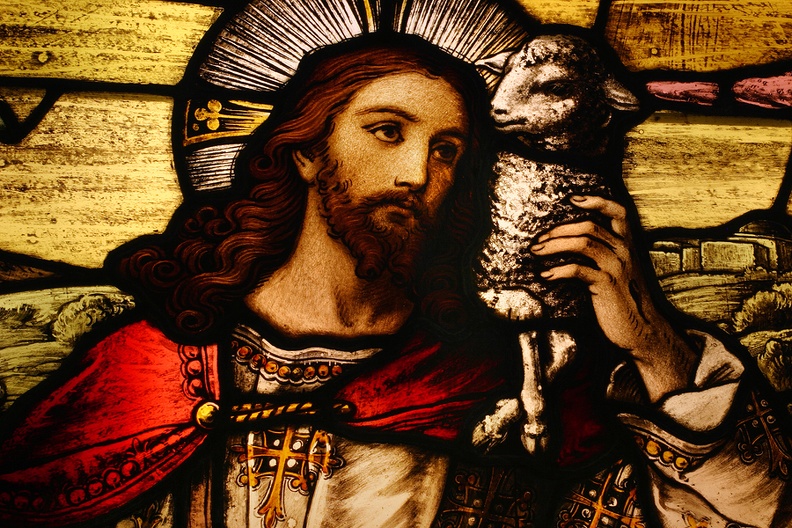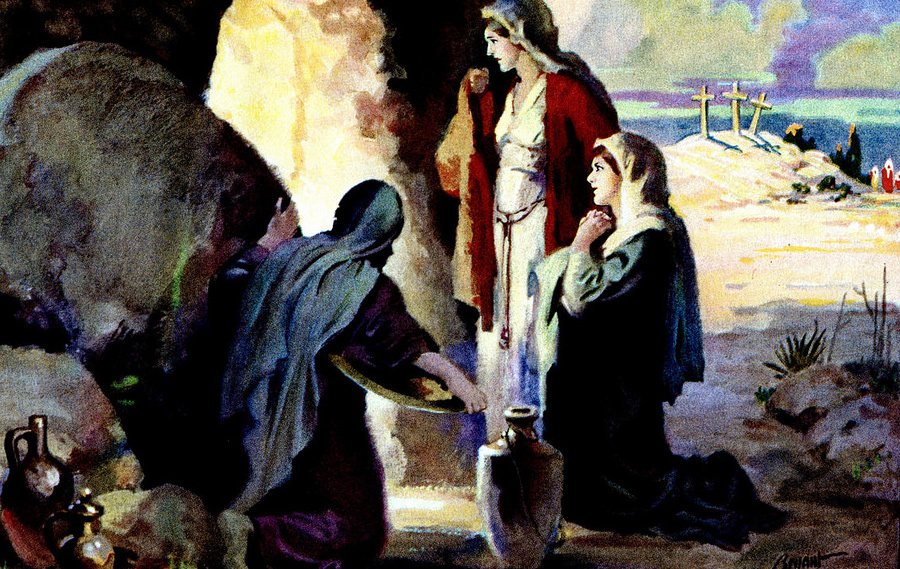Corpus Christi Blog

Kenosis
04-21-2024Weekly ReflectionJen Arnold, M.A.Today, we celebrate Good Shepherd Sunday, when we reflect on how Jesus is the shepherd who lovingly cares for his flock, leading them in the way they should go. The topic I have chosen for today's article – Kenosis – is most often discussed in the context of Good Friday, but I find it relevant to today’s theme as well.
To begin our discussion on kenosis, we will first look at the words of St. Paul:
…though he was in the form of God, [he] did not regard equality with God something to be grasped. Rather, he emptied himself, taking the form of a slave, coming in human likeness; and found human in appearance, he humbled himself, becoming obedient to death, even death on a cross. Because of this, God greatly exalted him and bestowed on him the name that is above every name… (Phil 2:6-9, emphasis added)
READ MORE
The Sign of the Cross
04-14-2024Weekly ReflectionJen Arnold, M.A.Today, I'm going to talk about something that most, if not all, Catholics tend to take for granted — the sign of the cross. It is a ritual we perform for various purposes, but primarily in prayer. While it is natural to us and may not often be consciously thought about, the sign of the cross has been the source of some controversy in Church history and even up to today. So, let's explore the sign of the cross, its history, significance, and how it has been historically defended.
READ MORE
Dynamic Forgiveness
04-07-2024Weekly ReflectionJen Arnold, M.A. in Theology and CatecheticsToday is Divine Mercy Sunday, which the Church designates to focus on the profound mercy Jesus offers us by forgiving our sins. Most of us are grateful for God's infinite mercy and forgiveness because we know we would be lost without it. We are also aware that we are called to offer forgiveness to others in response to the forgiveness God so freely gives us. The Our Father prayer indicates that offering forgiveness to others is obligatory if we want to ask it for ourselves – “Forgive us our trespasses as we forgive those who trespass against us.” However, it is sometimes difficult to take what we know in our minds and put it into practice. In this article, I would like to present a method by which we can have a more dynamic participation in the process of mercy and forgiveness, where we can work with the Lord in bringing about conversion.
READ MORE
The Dignity of Women Reaffirmed at the Resurrection
03-31-2024Weekly ReflectionJen Arnold, M.A. in Theology and CatecheticsHappy Easter!
The reality of the glorious Resurrection of Jesus Christ is central to our Catholic faith and something to be joyfully celebrated. Today, I want to reflect on how the story of the first Easter highlights the dignity of women through the person of Mary Magdalene.
Before I begin, I would like to establish that Jesus’ entire ministry revealed the dignity of women. First and foremost, his public ministry started at the behest of his blessed mother at the wedding feast of Cana, even after telling her that his "hour had not yet come” (Jn 2:4). From the very start, we see a 30-year-old man attentive and obedient to his mother in a patriarchal society. While he is the one doing the ministry work — in this case, changing water into wine — we see the feminine genius quietly and subtly orchestrating things behind the scenes, not seeking the spotlight for herself.
READ MORE
Lent with St. Francis — Part 6: Fervor & Diligence in Prayer
03-24-2024Weekly ReflectionJen Arnold, M.A. in Theology and CatecheticsIt is now the final Sunday in Lent and Palm Sunday. Next week is the joyful celebration of the Resurrection of Jesus Christ. First, we must journey through this dark Holy Week because, without the Passion and Crucifixion, there can be no Easter. We all go through dark times in our own lives. Afterwards, we can often recognize how God was working through it all, providing us with our own little easters to celebrate. Just as Jesus prayed in the Garden of Gethsemane before his Passion, we will all fare better when we stay close to God while carrying our crosses. This leads us to the final virtue of St. Francis in this Lenten series.
READ MORE
Lent with St. Francis — Part 5: Charity
03-17-2024Weekly ReflectionJen Arnold, M.A. in Theology and CatecheticsHow is your Lent going? Some years, we have good Lenten seasons where we feel spiritually strong and resilient and experience positive effects from prayer, fasting, and almsgiving. Some years, our Lent is not as good, and we fail to resist the temptations Satan throws our way in his attempts to distract us and derail our pursuits of growing in holiness. If this Lent has been more of a struggle for you, particularly in regards to practicing the virtues of St. Francis of Assisi, I want to offer some encouragement.
READ MORE
Lent with St. Francis — Part 4: Piety
03-10-2024Weekly ReflectionJen Arnold, M.A. in Theology and CatecheticsWe are now at about the halfway point of our Lenten journey with St. Francis. As we have explored the depth with which he embraced a life of virtue and abandonment to God, I hope you have felt inspired and encouraged to pursue your own life of virtue and holiness. If, on the other hand, you have been tempted to feel discouraged because it seems impossible to obtain St. Francis' mastery of virtue, remember that our spiritual life is always a journey, not a destination, and even some of the greatest saints, including Francis, have a sinful past. No matter how small the steps, keep moving forward! We will now turn to another of the saint's great virtues as described by St. Bonaventure.
READ MORE
Lent with St. Francis — Part 3: Poverty
03-01-2024Weekly ReflectionJen Arnold, M.A. in Theology and CatecheticsThis Lent, we have been reflecting on the virtues that St. Bonaventure described in his book about St. Francis of Assisi, so that we might strive to embody them on our own journeys of holiness. The first virtue we covered was austerity and how Francis practiced forms of physical penance to tame the desires of the flesh and yoke them to the suffering of Jesus for the salvation of souls. Then, we looked at humility and obedience and how these virtues glorify God by recognizing that any gifts a person possesses, or any authority placed over him, is only because God has willed it to be so. We have now reached the Third Sunday of Lent, focusing on the virtue of poverty embraced by St. Francis.
Chapter Seven: Of His Love of Poverty, and the Wonderful Provision Made for All His Wants by God
READ MORE